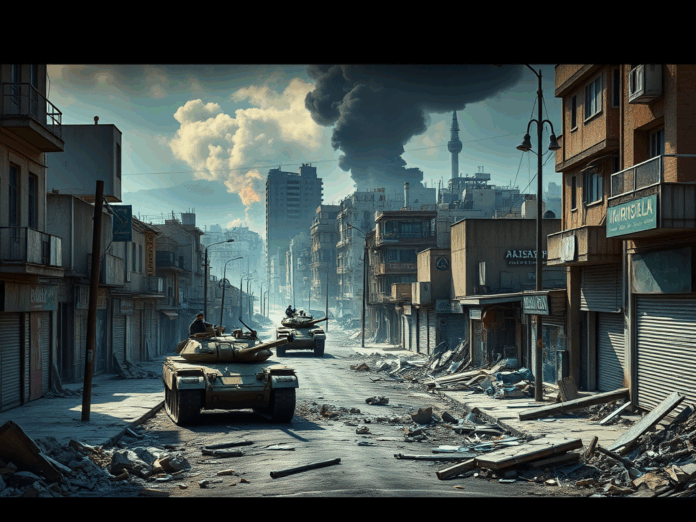As tensions in the Middle East escalate, many eyes are on military manoeuvrers, missile strikes, and geopolitical alliances. But there is a deeper, quieter reality playing out beneath the explosions: the economic time bomb that could force a ceasefire long before any diplomatic resolution or military defeat.
A War of Attrition Israel Can’t Sustain
Modern Israel’s economy thrives on technology, services, and global investment. It is not built for a prolonged shutdown. With reservists pulled from the workforce, tourism decimated, and investors jittery, each day of continued conflict chips away at long-term stability. No economy, however resilient, can survive weeks of national disruption without consequences.
This is not a war-time economy in the traditional sense. There is no vast manufacturing base ramping up. There are no empty oil fields to monetise. Israel is a post-industrial economy facing a very industrial-style war of attrition.
Allies with Empty Pockets
Traditionally, Israel has relied on robust Western support in times of crisis. But this time, its closest allies are themselves teetering:
- The UK economy just shrank by 0.3%. Consumer confidence is weak, and inflation is still biting.
- Germany and France are battling stagnation and political instability.
- The US, ahead of a presidential election, is cautious about deeper foreign entanglements with potentially inflationary consequences.
In short, nobody has the money or political will to write Israel a blank cheque. If Israel wants to rebuild after this, it will have to look inward — and inward is already broken.
Iran’s Quiet Strategy
Despite Israeli claims of air superiority over Iran, Tehran is playing the long game. Rather than exposing its best defences, Iran appears to be allowing Israeli flyovers while keeping its most strategic assets hidden. Hypersonic missile announcements and precision strikes by proxies point to a sophisticated, distributed deterrence strategy.
What else lies in reserve? Possibly more advanced missiles, cyber capabilities, and hardened defences not only inside Iran, but across the region in allied proxy states. This is a war of strategic patience, and Israel may have walked into a trap it cannot bomb its way out of.
Oil Prices: The Silent Threat
Escalation means oil disruption. The Houthis have already hit Red Sea shipping. If the Strait of Hormuz is affected, global markets will panic. That translates to:
- Soaring energy bills in Europe
- Renewed inflation pressure in the US
- Supply chain slowdowns globally
And that’s without a single American or British soldier being deployed. Economic fallout is not a risk — it’s a certainty.
Rebuilding What?
Even if Israel stopped fighting tomorrow, the damage is done. Investor confidence is shaken. Infrastructure has been hit. Diplomatic support is fraying. The cost to rebuild, both physically and reputationally, is vast.
Worse still, Israel has shown the world that its economy is not conflict-resilient. It is vulnerable, dependent on calm and foreign support. That seed of doubt has now been planted — and its growth will be hard to reverse.
Final Word
Trump’s hesitation may not be weakness, but calculation. By delaying action, he’s letting reality bite. Netanyahu, once the architect of a confident, defiant Israel, now finds himself exposed: militarily stretched, diplomatically isolated, and economically bleeding.
This is not just a military crisis. It is a slow-burning economic collapse in the making — and that may be the one weapon Israel cannot defend against.
